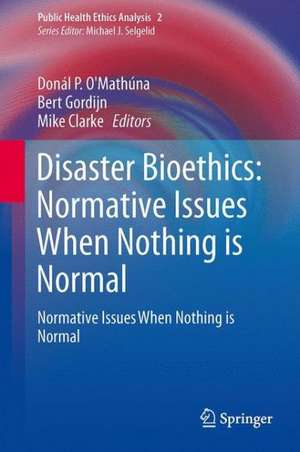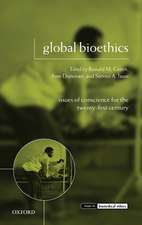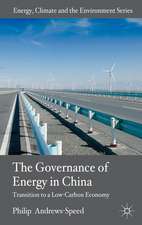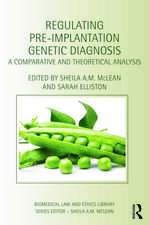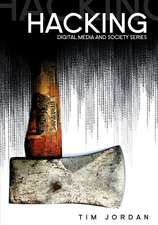Disaster Bioethics: Normative Issues When Nothing is Normal: Public Health Ethics Analysis, cartea 2
Editat de Dónal P. O’Mathúna, Bert Gordijn, Mike Clarkeen Limba Engleză Hardback – 23 ian 2014
examining the ethical issues raised by disasters. Healthcare ethics issues are addressed in the first part of this book. Large-scale casualties lead to decisions about who to treat and who to leave behind, cultural challenges, and communication ethics. The second part focuses on disaster research ethics.
With the growing awareness of the need for evidence to guide disaster preparedness and response, more research is being conducted in disasters. Any research involving humans raises ethical questions and requires appropriate regulation and oversight. The authors explore how disaster research can take account of survivors? vulnerability, informed consent, the sudden onset of disasters, and other ethical issues. Both parts examine ethical challenges where seeking to do good, harm can be done. Faced with overwhelming needs and scarce resources, no good solution may be apparent. But choosing the less wrong option can have a high price. In addition, what might seem right at home may not be seen to be right elsewhere. This book provides in-depth and practical reflection on these and other challenging ethical questions arising during disasters.
Scholars and practitioners who gathered at the Brocher Foundation in Geneva, Switzerland in 2011 offer their reflections to promote further dialogue so that those devastated by disasters are respected by being treated in the most ethically soun
d ways possible.
| Toate formatele și edițiile | Preț | Express |
|---|---|---|
| Paperback (1) | 886.92 lei 43-57 zile | |
| SPRINGER NETHERLANDS – 2 oct 2016 | 886.92 lei 43-57 zile | |
| Hardback (1) | 763.89 lei 22-36 zile | +22.22 lei 6-12 zile |
| SPRINGER NETHERLANDS – 23 ian 2014 | 763.89 lei 22-36 zile | +22.22 lei 6-12 zile |
Preț: 763.89 lei
Preț vechi: 839.43 lei
-9% Nou
Puncte Express: 1146
Preț estimativ în valută:
146.17€ • 152.100$ • 121.66£
146.17€ • 152.100$ • 121.66£
Carte disponibilă
Livrare economică 10-24 martie
Livrare express 22-28 februarie pentru 32.21 lei
Preluare comenzi: 021 569.72.76
Specificații
ISBN-13: 9789400738638
ISBN-10: 9400738633
Pagini: 228
Ilustrații: VIII, 219 p. 5 illus.
Dimensiuni: 155 x 235 x 20 mm
Greutate: 0.5 kg
Ediția:2014
Editura: SPRINGER NETHERLANDS
Colecția Springer
Seria Public Health Ethics Analysis
Locul publicării:Dordrecht, Netherlands
ISBN-10: 9400738633
Pagini: 228
Ilustrații: VIII, 219 p. 5 illus.
Dimensiuni: 155 x 235 x 20 mm
Greutate: 0.5 kg
Ediția:2014
Editura: SPRINGER NETHERLANDS
Colecția Springer
Seria Public Health Ethics Analysis
Locul publicării:Dordrecht, Netherlands
Public țintă
ResearchCuprins
Chapter 1 Disaster Bioethics: An Introduction.- Chapter 2 Macro-triage in Disaster Planning.- Chapter 3 Ethics and Emergency Disaster Response. Normative Approaches and Training Needs for Humanitarian Health Care Providers.- Chapter 4 Triage in Disaster Medicine: Ethical Strategies in Various Scenarios Chapter 5 When Relief Comes from a Different Culture: Sri Lanka’s Experience of the Asian Tsunami References.- Chapter 6 Ethical Issues in Health Communications: Strategies for the (Inevitable) Next Pandemic.- Chapter 7 Evidence and Healthcare needs during Disasters.- Part II.- Chapter 8 Interests Divided: Risks to Disaster Research Subjects vs. Benefits to Future Disaster Victims.- Chapter 9 Purple Dinosaurs and Victim Consent to Research in Disasters.- Chapter 10 Setting Disaster Research Priorities. - Chapter 11 Studying Vulnerable Populations in the Context of Enhanced Vulnerability.- Chapter 12 Research Ethics Governance in Disaster Situations.- Chapter 13 Ethical Concerns in Disaster Research – A South African Perspective.- References.- Appendix I - Code of Conduct for the International Red Cross and Red Crescent Movement and NGOs in Disaster Relief.- Appendix II - WMA Statement on Medical Ethics in the Event of Disasters.- Index
Recenzii
“This edited volume brings together an interdisciplinary array of scholars from around the world to discuss disaster bioethics. … book offers an insightful examination of some neglected topics within the larger study of disasters that warrant inquiry. … Disaster Bioethics is a much needed contribution to a field that struggles with how to carry out research in extreme situations. It should be read, at the very least, by any scholar or practitioner who wishes to conduct fieldwork in disaster research.” (Nathalie Baker, Natural Hazards Observer, Vol. 39 (6), July, 2015)
“The book is comprised of 13 chapters … contributed by individual authors and divided into two sections. … It will serve to shape and focus future research and debate. … This is a volume that will be of value to those interested in exploring the acceptable ethical bounds of conduct during times of disaster. Such individuals should include not only ethicists but also public health professionals, humanitarian aid workers, and academics who might conduct research in a disaster setting.” (James D. Hearn, Bioethical Inquiry, Vol. 12, 2015)
“The book is comprised of 13 chapters … contributed by individual authors and divided into two sections. … It will serve to shape and focus future research and debate. … This is a volume that will be of value to those interested in exploring the acceptable ethical bounds of conduct during times of disaster. Such individuals should include not only ethicists but also public health professionals, humanitarian aid workers, and academics who might conduct research in a disaster setting.” (James D. Hearn, Bioethical Inquiry, Vol. 12, 2015)
Textul de pe ultima copertă
This book provides an early exploration of the new field of disaster bioethics:
examining the ethical issues raised by disasters. Healthcare ethics issues are addressed in the first part of this book. Large-scale casualties lead to decisions about who to treat and who to leave behind, cultural challenges, and communication ethics. The second part focuses on disaster research ethics.
With the growing awareness of the need for evidence to guide disaster preparedness and response, more research is being conducted in disasters. Any research involving humans raises ethical questions and requires appropriate regulation and oversight. The authors explore how disaster research can take account of survivors? vulnerability, informed consent, the sudden onset of disasters, and other ethical issues. Both parts examine ethical challenges where seeking to do good, harm can be done. Faced with overwhelming needs and scarce resources, no good solution may be apparent. But choosing the less wrong option can have a high price. In addition, what might seem right at home may not be seen to be right elsewhere. This book provides in-depth and practical reflection on these and other challenging ethical questions arising during disasters.
Scholars and practitioners who gathered at the Brocher Foundation in Geneva, Switzerland in 2011 offer their reflections to promote further dialogue so that those devastated by disasters are respected by being treated in the most ethically sou
nd ways possible.
examining the ethical issues raised by disasters. Healthcare ethics issues are addressed in the first part of this book. Large-scale casualties lead to decisions about who to treat and who to leave behind, cultural challenges, and communication ethics. The second part focuses on disaster research ethics.
With the growing awareness of the need for evidence to guide disaster preparedness and response, more research is being conducted in disasters. Any research involving humans raises ethical questions and requires appropriate regulation and oversight. The authors explore how disaster research can take account of survivors? vulnerability, informed consent, the sudden onset of disasters, and other ethical issues. Both parts examine ethical challenges where seeking to do good, harm can be done. Faced with overwhelming needs and scarce resources, no good solution may be apparent. But choosing the less wrong option can have a high price. In addition, what might seem right at home may not be seen to be right elsewhere. This book provides in-depth and practical reflection on these and other challenging ethical questions arising during disasters.
Scholars and practitioners who gathered at the Brocher Foundation in Geneva, Switzerland in 2011 offer their reflections to promote further dialogue so that those devastated by disasters are respected by being treated in the most ethically sou
nd ways possible.
Caracteristici
The first detailed examination of disaster bioethics covering both the ethics of disaster healthcare as well as disaster research Takes a global perspective where the differences in culture and resources are acknowledged Written by an international panel of leading scholars Includes supplementary material: sn.pub/extras
